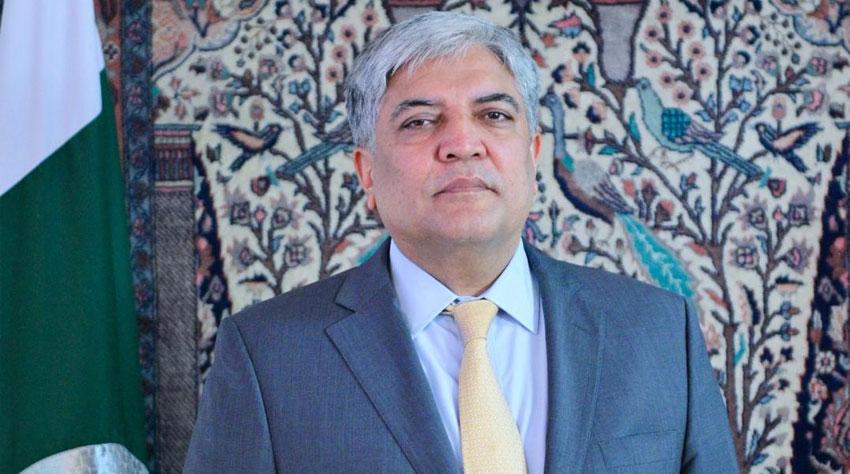Ceasefire With India in Effect, Pakistani FM Spokesperson Tells Kurdistan24
Khan’s comments come just hours after U.S. President Donald Trump announced that New Delhi and Islamabad had reached a full and immediate ceasefire following a tense week of military escalation that raised fears of a larger regional war.

ERBIL (Kurdistan24) — In an exclusive statement to Kurdistan24, Shafqat Ali Khan, spokesperson for Pakistan’s Foreign Ministry, confirmed that the ceasefire agreement between Pakistan and India has now moved into the implementation phase following days of heightened cross-border hostilities.
“Both countries are proceeding with the ceasefire as agreed,” Khan told Kurdistan24 on Saturday, emphasizing Islamabad’s commitment to de-escalation and regional stability. The spokesperson also reaffirmed that Pakistan’s air traffic operations remain uninterrupted, stating, “Our flights have continued without any disruption.”
Khan’s comments come just hours after U.S. President Donald Trump announced that New Delhi and Islamabad had reached a full and immediate ceasefire following a tense week of military escalation that raised fears of a larger regional war.
“After a long night of talks mediated by the United States, I am pleased to announce that India and Pakistan have agreed to a FULL AND IMMEDIATE CEASEFIRE,” Trump posted early Saturday on Truth Social. “Congratulations to both Countries on using Common Sense and Great Intelligence.”
The truce follows a series of deadly missile and drone exchanges between the two nuclear-armed nations, triggered by an Indian strike into Pakistani territory in retaliation for a mass-casualty attack in Indian-administered Kashmir. Pakistan responded with Operation Bunyan al-Marsus, targeting multiple Indian military sites, including a BrahMos missile depot and key airbases.
As tensions spiraled, the international community, including the United Nations, European powers, and Gulf countries, urged restraint. U.S. Secretary of State Marco Rubio personally contacted Pakistan’s Army Chief Gen. Asim Munir, offering American mediation and calling for calm.
The conflict had escalated to such a degree that both nations activated high-level defense protocols—India mobilized additional forces to its western frontier while Pakistan convened its National Command Authority, responsible for overseeing its nuclear posture.
Though the situation now appears to be stabilizing, the ceasefire remains fragile. Underlying tensions over Kashmir and militant activity continue to pose long-term challenges to peace. Past truces have often faltered due to renewed provocations or political shifts on either side.
Nonetheless, Shafqat Ali Khan’s direct confirmation to Kurdistan24 underscores Pakistan’s willingness to uphold the ceasefire and avoid further conflict. For neighboring regions, including the broader Middle East—where millions of Indian and Pakistani expatriates work and contribute to the economy—a sustained peace is crucial to maintaining stability and averting humanitarian and economic shocks.
As calm returns to the region, the international community will closely watch whether this ceasefire opens the door to a broader political resolution—or merely pauses another cycle of violence.
